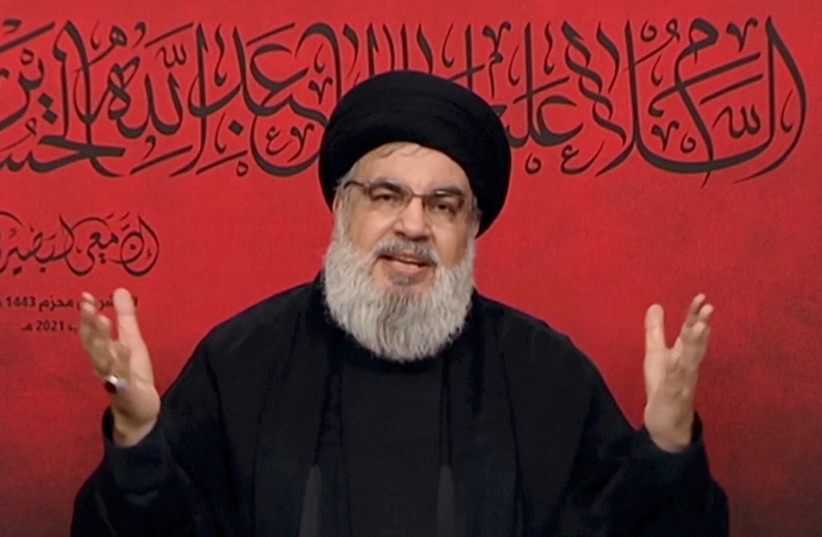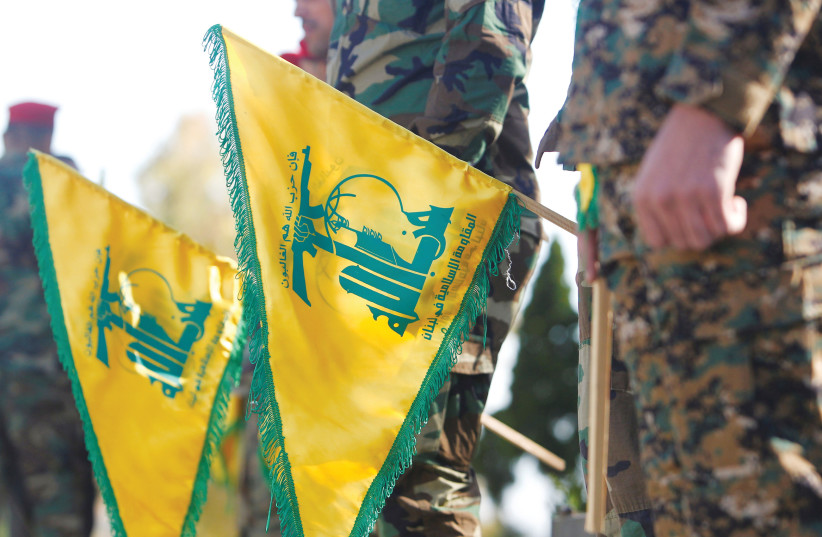The move comes as Hezbollah attempts to further extend its political influence in Lebanon, and tries to refute accusations by Gulf states and the Lebanese public that it is an Iranian proxy.

If war breaks out between Iran and Israel, Hezbollah may not get involved, according to its Secretary-General Hassan Nasrallah.
Nasrallah made the assessment on Tuesday during an interview with the Iran-based Arabic news channel Al-Alam News Network, according to the Lebanese online news portal Naharnet.
It appears to be an attempt by Nasrallah to publicly distance Hezbollah, and himself, from Tehran, analysts say.
Torbjorn Soltvedt, principal analyst of the Middle East and North Africa at Verisk Maplecroft in London, told The Media Line that Nasrallah’s recent comments underscore the delicate political situation in Lebanon at the current moment.
More specifically, Soltvedt said, “Nasrallah will be acutely aware that ongoing allegations that Hezbollah is looking to capitalize on the current political and economic crisis needs to be managed carefully.”

Soltvedt said that, from a domestic political standpoint, it makes sense for Nasrallah to signal Hezbollah’s independence from Tehran in the event of a conflict between Iran and Israel.
“It is unlikely that Iran would not draw on Hezbollah’s missile capabilities in the event of a conflict with Israel, but Hezbollah has little to gain from stating this publicly, especially at a time when Hezbollah is eying the opportunity to extend its political influence in Lebanon even further,” Soltvedt added.
Adam Prus, Middle East and North Africa analyst at a political risk firm, agrees. He told The Media Line that Nasrallah also may have been attempting to appease segments of society who are dismayed at Iran’s perceived sway over developments within Lebanon.
“The country is in the midst of one of the world’s worst socioeconomic collapses; pushback against what is in effect a state within a state is inevitable. Even so, Hezbollah is and will remain an Iranian proxy,” he said.
After the decision to end its three-month boycott of the Lebanese Cabinet boycott, Hezbollah has faced renewed criticism that it is doing Iran’s bidding at a critical time in Lebanese politics.
However, Jamal Wakim, professor of History and International Relations at Lebanese University, told The Media Line that Iran does not interfere in Lebanese affairs in the sense that it does not give instructions and orders to Lebanese politicians.
“The relationship between Hezbollah and Iran is religious and ideological and Hezbollah’s decisions are taken by its leadership,” Wakim said.
Soltvedt disagrees with this assessment. “While the Gulf states will continue to play a part in Lebanese politics, Iran will remain by far the more influential external actor for the foreseeable future,” he said.
The US and Gulf pressures on Lebanon have taken the form of economic and financial sanctions, “in addition to instructions to the Lebanese forces and NGOs to wage a campaign against Hezbollah and their allies,” he said.
Soltvedt believes this pressure is due to the Iranian influence over Hezbollah and Lebanese politics and, he added, “while this remains the case, the Gulf states are likely to approach any requests for financial assistance from Lebanon with caution.”
Prus said that Lebanon will continue to suffer economically and politically. “The Gulf states had given millions to Lebanon in financial support; however, from their perspective, they received very little back, with Iran and Hezbollah only increasing their control over the country.”
The Saudis, in particular, have targeted the country’s economy by banning various Lebanese imports. While ostensibly in response to the smuggling of narcotics into the kingdom, Riyadh is aware that such a ban will further damage Lebanon’s faltering economy.
Wakim, however, believes that this situation will not last for much longer.
“I believe that at some point there will be an agreement between the regional powers, and this will result in an agreement between various Lebanese parties, including Hezbollah, and of course the Gulf states will retain their influence through their Lebanese allies,” he said.
“The Lebanese are accustomed to foreign interference in their affairs. Most people do not like it but they know that to change this reality they need first to change the political system. But too bad the forces of change are not united nor strong enough to do this,” Wakim concluded.
Content retrieved from: https://www.jpost.com/middle-east/iran-news/article-696206.